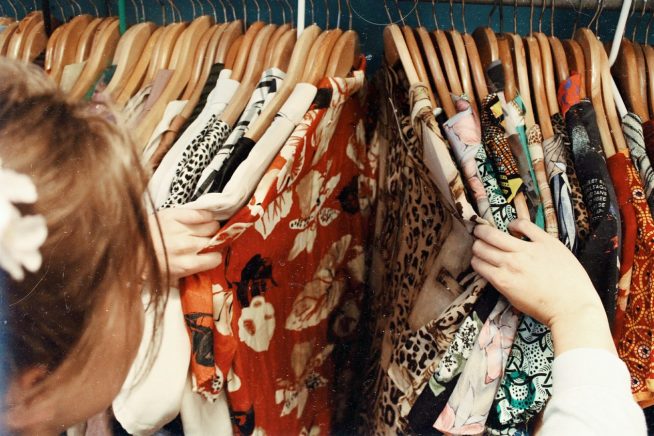Recently, I was helping a friend clear out her closet (one of my favorite things to do), and I made a new observation about the nature of clutter.
This seems counter-intuitive, but it makes sense: people who aren’t very interested in clothes (like me and my friend) are far more likely to have clothes clutter than people who love clothes.
Why?
First of all, “clutter” is stuff that you don’t like or don’t use. So people who love clothes may have bursting closets, but because they love the clothes they have, it doesn’t feel like “clutter.”
Many people who love clothes (not all, but many) are scrupulous about weeding out clothes that don’t work. This subset tends to have a highly edited collection of clothes, because they only keep things that look good, are useful, and are in great shape. People who love their clothes less ruthlessly may have packed closets and drawers, but they revel in the abundance.
On the other hand, people who aren’t interested in clothes are often overwhelmed by clothes clutter.
Because they aren’t interested in clothes, they can’t be bothered to make decisions like “That pair of brown pants is more comfortable than this pair of brown pants, so I’ll get rid of this pair,” or “This sweater is looking pretty tired, so I’ll retire it.”
Because such folks often hate to shop as well (again, this is me, unless I go with my mother), they dread the possibility of having to run out and buy something for a particular occasion. So they refuse to let go of any stitch of clothing, for fear that some circumstance will arise when they’ll need it.
People who love clothes have less clutter, too, because they like to think of different ways to wear the clothes they have; they get more use out of their clothes. People who don’t like clothes don’t spend any time thinking about them, so don’t realize that there’s a way to use that black sweater or those corduroy pants—and because those clothes aren’t worn, they turn into clutter.
If you’re drowning in clutter, and you’re not much interested in clothes, the best thing to do is to pare down your wardrobe—dramatically.
Aim to get rid of at least half the items you own. How many t-shirts do you really need? How many pairs of jeans? Does that jacket really fit? When was the last time you wore that shirt? Brace yourself: you’ll find this process boring and anxiety-producing, but you will be amazed by how energized you’ll feel after you get rid of the bags and bags and bags that are headed to the trash or to a donation center.
In my new book, Outer Order, Inner Calm I write about how to de-clutter and organize to make more room for happiness. For me, clearing clutter is a key in striving to be happier. Outer order makes it much easier for me to find inner serenity. Not to mention that it’s easier to find my keys.
Gretchen Rubin is the author of the #1 New York Times Bestseller The Happiness Project—an account of the year she spent test-driving the wisdom of the ages, current scientific studies, and lessons from popular culture about how to be happier—and the recently released Happier at Home and Better Than Before. On her popular blog, The Happiness Project, she reports on her daily adventures in the pursuit of happiness. For more doses of happiness and other happenings, follow Gretchen on Facebook and Twitter.
Image courtesy of Becca McHaffie.












